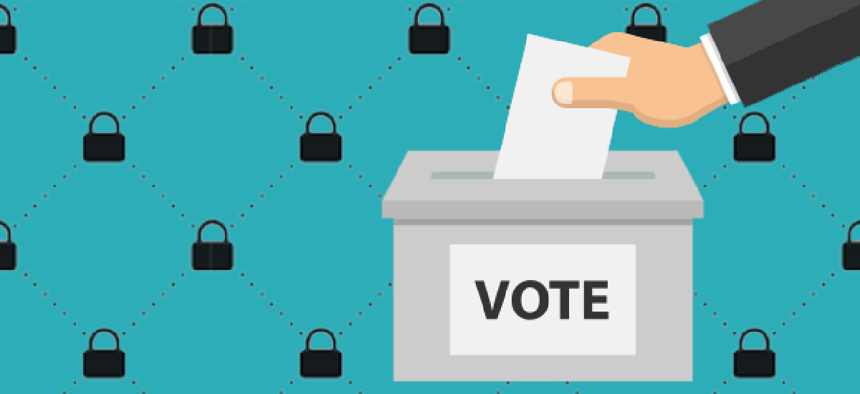Bipartisan Senate bill would help states beef up election cybersecurity


Connecting state and local government leaders
The new proposal would help streamline cybersecurity info-sharing between federal and state officials, authorize grants to replace outdated equipment and develop election cybersecurity guidelines.
This article originally appeared in Stateline, an initiative of the Pew Charitable Trusts.
Six U.S. senators have filed a bipartisan bill that would provide grants to states to help them move from paperless voting machines to paper ballots in an effort to make voting systems less vulnerable to hackers.
In September, the U.S. Department of Homeland Security notified election officials in nearly two dozen states that their voter registration systems had been targeted by Russian hackers during the 2016 presidential election.
While the hackers failed to breach most of the systems, in Illinois, they succeeded in accessing the voter database, and nearly 90,000 records were compromised. And in Arizona, hackers stole an election employee’s username and password, but the system wasn’t compromised, according to the Arizona secretary of state.
The National Association of Secretaries of State said the intruders did not access actual voting machines or devices that tabulate results in any states.
The new proposal would help streamline cybersecurity information-sharing between federal intelligence agencies and state election officials, authorize grants to states to replace outdated electronic voting machines, and establish an advisory panel to develop election cybersecurity guidelines.
“It is imperative that we strengthen our election systems and give the states the tools they need to protect themselves and the integrity of voters against the possibility of foreign interference,” Republican Sen. James Lankford of Oklahoma, one of the sponsors of the Secure Elections Act, said in a statement. He was joined by Republican Sens. Susan Collins of Maine and Lindsey Graham of South Carolina, along with Democrats Amy Klobuchar of Minnesota, Kamala Harris of California and Martin Heinrich of New Mexico.
After the “hanging chad” fiasco during the 2000 presidential recount, many states switched to electronic-only voting machines to modernize their systems.
But computer scientists, cybersecurity experts and advocates for election integrity soon became concerned that with electronic-only technology, officials couldn’t verify that a vote was tabulated correctly because there was no paper record. They said paper ballots provided better audit and recount records.
Over the last decade, many states and counties abandoned electronic voting machines and turned to paper, often with equipment that tabulates the ballots using optical or digital scanners.
But five states -- Delaware, Georgia, Louisiana, New Jersey and South Carolina -- still use only electronic voting machines, according to Lawrence Norden of the Brennan Center for Justice, a public policy institute at New York University Law School. In eight other states, including Pennsylvania and Virginia, paperless systems are used in some counties and cities, including Philadelphia.
A Pew Research Center analysis of data from the Verified Voting Foundation, a nonprofit that advocates for paper ballots and election integrity, found that in 2014, more than a quarter of registered voters lived in jurisdictions that used only electronic voting machines, most of which don’t provide a paper trail. (The Pew Research Center is funded by The Pew Charitable Trusts, which also funds Stateline).
Amid recent security concerns over Russian hacking, there has been a renewed focus on shifting to paper ballots.
In Virginia, election officials decided in September to stop using paperless touch-screen machines, in an effort to safeguard against unauthorized access to the equipment and improve the security of the state’s voting system.
In Georgia, which uses electronic voting machines with no paper record, officials are considering getting rid of their aging equipment and using paper ballots instead. In November, officials tested a hybrid electronic-paper system in a municipal election.
NEXT STORY: Top cyber risks for 2018




